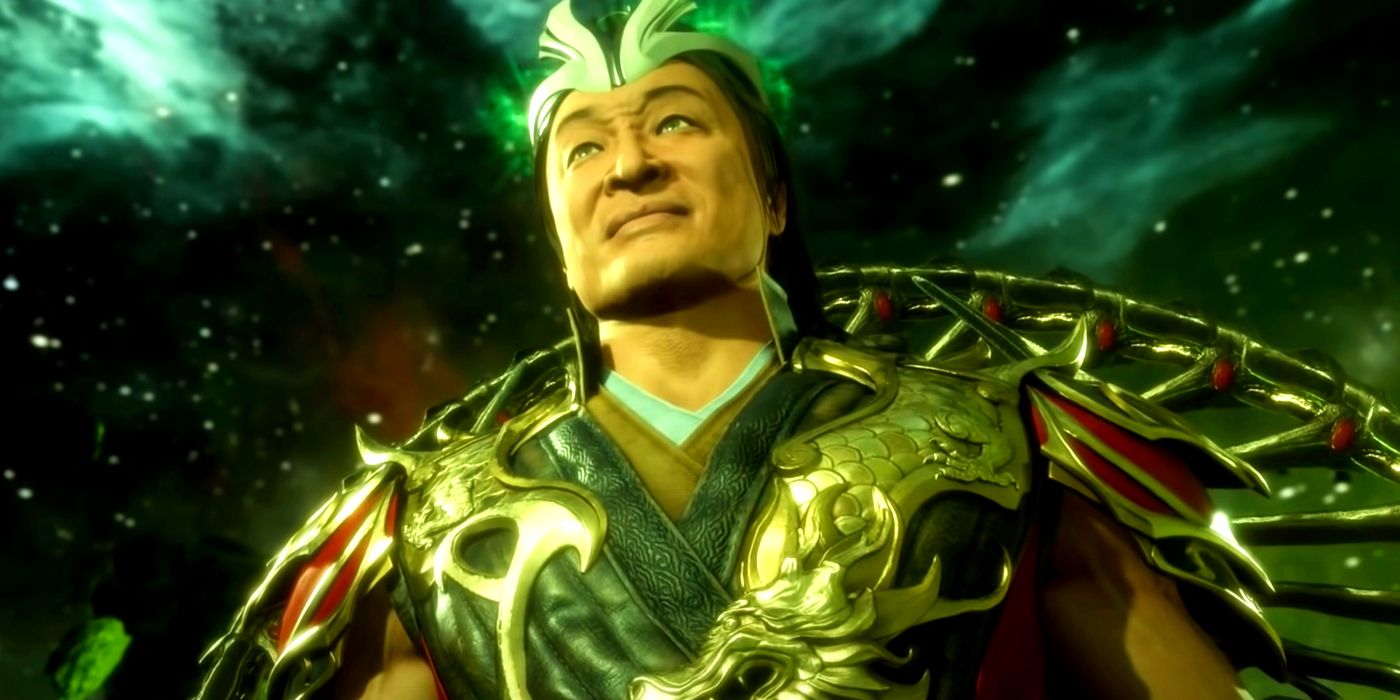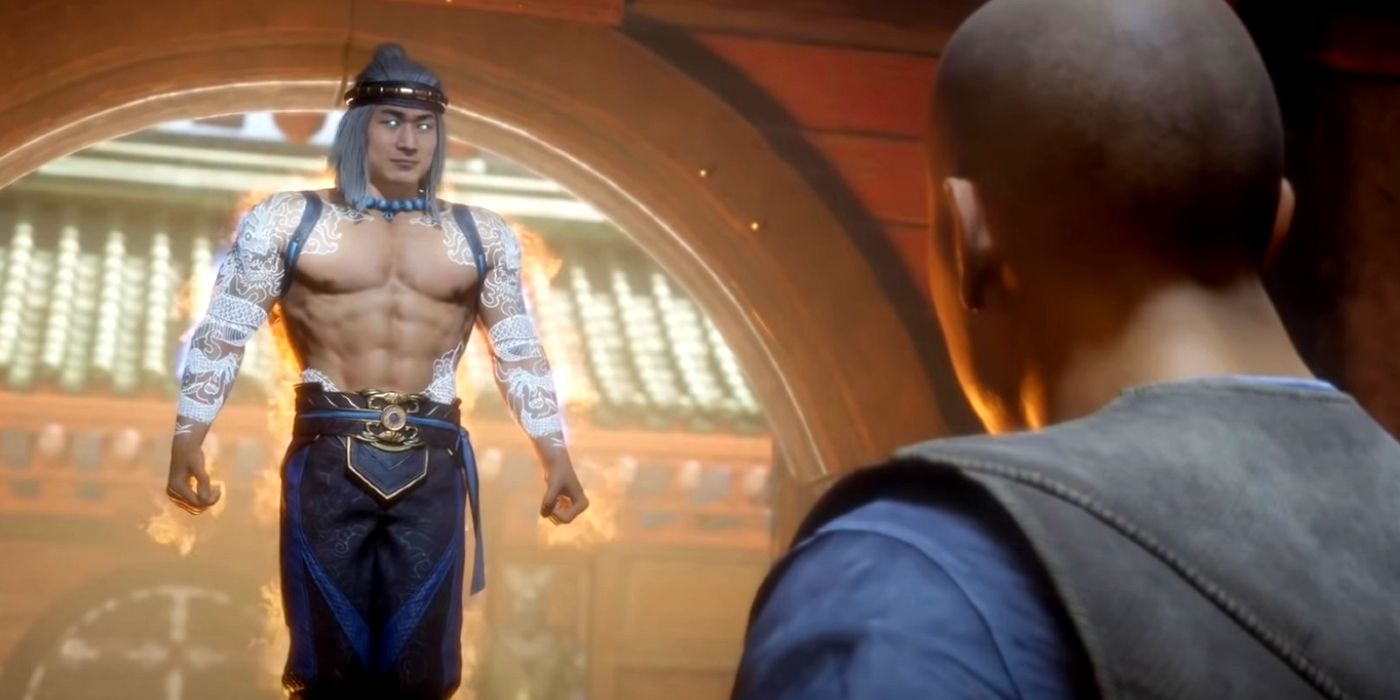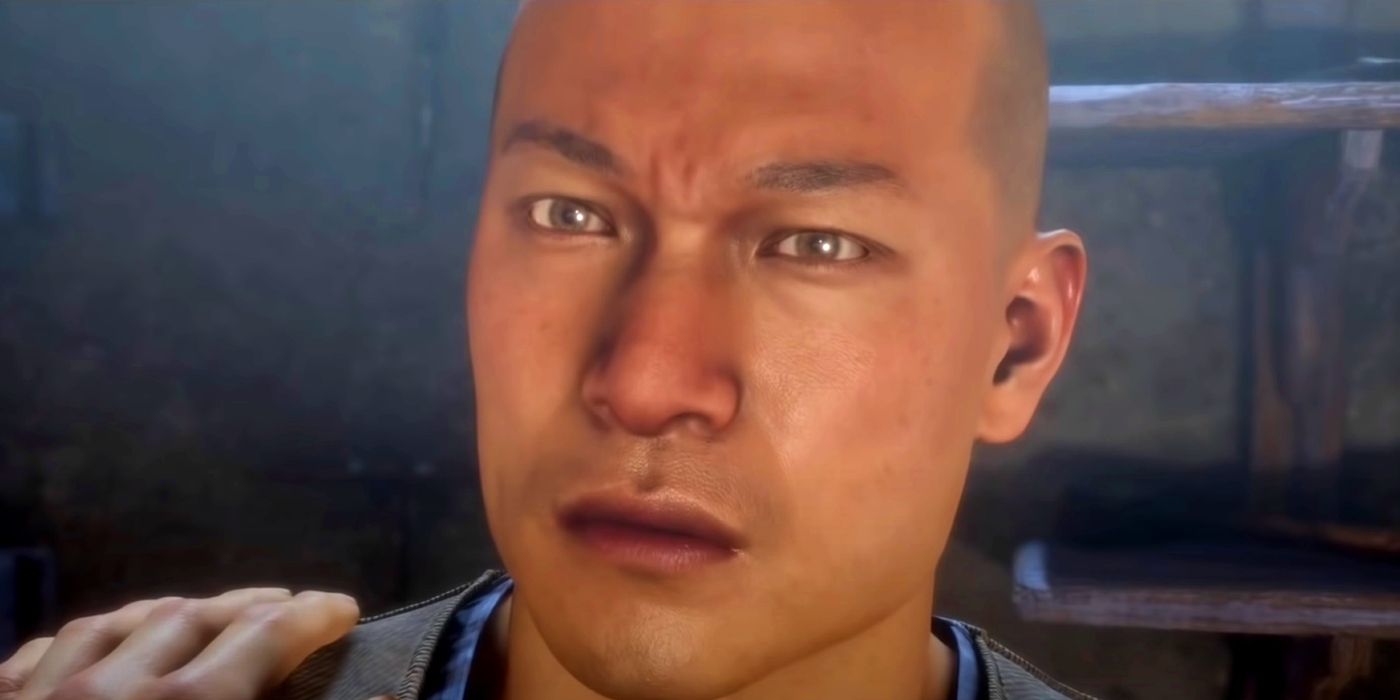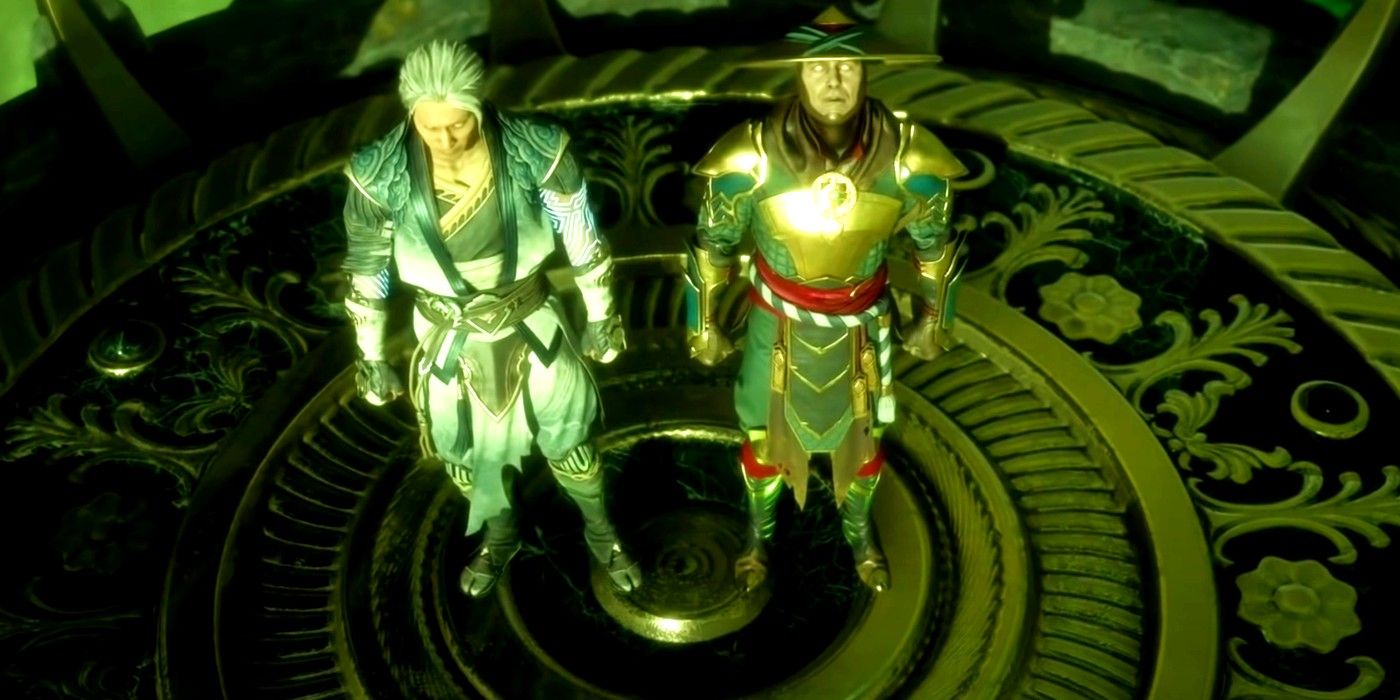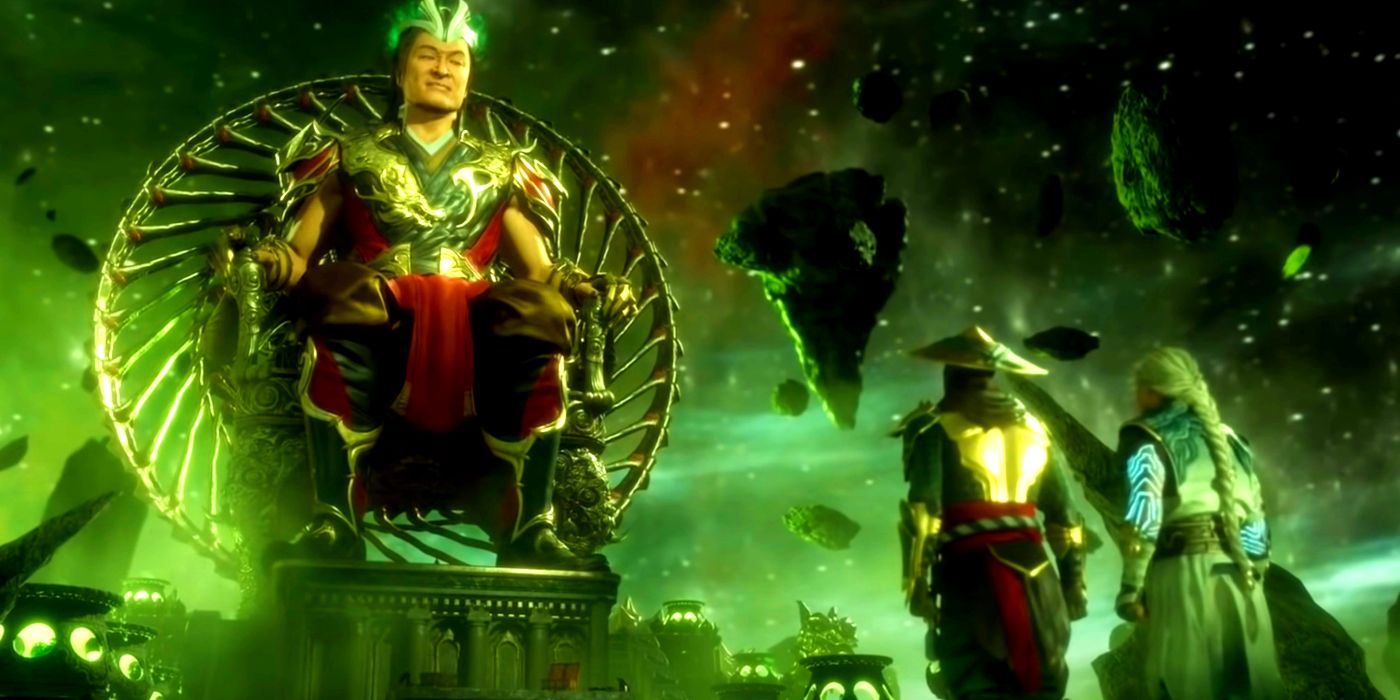The ending of Mortal Kombat 11: Aftermath sees a climactic battle between Shang Tsung and Liu Kang in the ultimate showdown to determine the fate of the realms. Shang Tsung and Liu Kang have been mortal enemies ever since the very first Mortal Kombat game, and the final fight of Mortal Kombat 11: Aftermath not only pits them together one last time but it also lets the player decide who comes out the victor.
Both characters have come a long way since their original appearance in 1992's Mortal Kombat. Although the franchise later turned to other, more immediately imposing villains like Shao Kahn and the Dragon King Onaga, Shang Tsung has always remained in the background, plotting his return and eventual takeover. Likewise, although Liu Kang was temporarily killed off and the developers attempted to bring other Mortal Kombat characters into the role of hero, he also eventually returned, first as a zombie and then, as he is shown at the end of Mortal Kombat 11: Aftermath, as the Fire God Liu Kang.
With two different directions the ending of Mortal Kombat 11: Aftermath can go in, it's up to the player to choose whether Liu Kang or Shang Tsung will take full control over Kronika's hourglass, and thus be able to shape the past and future of all the realms as they see fit. Shang Tsung wants complete domination over his enemies and to see them become his slaves. Liu Kang wants to end Shang Tsung's evil and bring all of his lost friends back to life. Here's what happens in both endings, and what it means for the next Mortal Kombat game.
MK11 Aftermath's Good Ending Explained
In the good ending of Mortal Kombat 11: Aftermath, players take control of the Fire God Liu Kang and fights Shang Tsung for the final time. The sorcerer, once defeated, crumbles to sand in front of Liu Kang's eyes. Liu Kang then places Kronika's crown on his head and floats victoriously over to the hourglass. He begins to operate it, using all of his strength and powers to influence Kronika's hourglass and create a new, better world. The camera fades.
The scene changes to what appears to be the Wu Shi Academy, the place where Mortal Kombat characters such as Kung Lao, Kai, and Liu Kang himself trained to become Shaolin Monks. There are a small number of monks practicing athletic moves in the courtyard, and as the camera pans down it enters the hut of a man polishing a small green idol. This is Kung Lao, but not the Kung Lao players are familiar with.
Liu Kang floats down through the man's doorway, startling him greatly, and introduces himself as "Lord Liu Kang, God of Thunder and Fire," Upon hearing this Kung Lao bows down and begs for forgiveness for not knowing who he was. Liu Kang smiles and tells him he his "humble, not like the Kung Lao I knew..."
This is The Great Kung Lao, the one who was originally mentioned as Goro's adversary back in the very first Mortal Kombat game, something which took place decades before the events of the first tournament that players witnessed. Liu Kang says that he has chosen this Kung Lao has his champion, and that they have work to do. He says Kung Lao must be prepared, and that he needs "Training." When Kung Lao asked what he needs to be trained for, Liu Kang only offers a small smirk before the camera cuts to credits, insinuating that a whole new cycle of Mortal Kombat tournaments is about to begin.
The good ending to Mortal Kombat 11: Aftermath sees Liu Kang creating a world which looks very similar to the first, but now the former protagonist has taken on Raiden's role of Protector of Earthrealm. It appears as if the Mortal Kombat tournament still exists in this new reality, but it's unclear if Liu Kang also allowed for characters like Quan Chi, Shinnok, and Shao Kahn to exist. If Mortal Kombat once again reboots itself on the next generation of consoles, this would be a perfect place to start.
MK11 Aftermath's Bad Ending Explained
If players choose to fight the final battle of Mortal Kombat 11: Aftermath as Shang Tsung and they emerge victorious, Shang Tsung will finally defeat his most feared opponent once and for all. He sucks the soul (and all of the powers) from Liu Kang's body and then takes control of Kronika's hourglass, and with no one left to stop him Shang Tsung decides to make a new reality perfectly suited to his diabolical ways.
The camera fades to a dark green chamber floating in an ethereal blackness. Raiden and Fujin teleport in onto a dais and Shang Tsung, shown only from behind, gently lifts a finger and commands them to speak, calling the two former gods "Minions." Raiden speaks on command, looking up into his former enemy's face and calling him "My lord" as he confirms that Shang Tsung's task has been completed. Fujin confirms what Raiden says, adding that "Outworld, Earthrealm, the Netherrealm... all are conquered." Raiden says that Chaosrealm and Orderrealm are next, and that all the realms will soon bow to Shang Tsung's influence.
The camera flips to reveal Shang Tsung towering over Raiden and Fujin in a massive throne. He is still wearing Kronika's crown, and the camera slowly zooms in on his face while he begins to chuckle manically. Shang Tsung offers some final words, echoing the character's most famous line from the Mortal Kombat film "It has begun," and the camera cuts to black.
Chaosrealm and Orderrealm, while not mentioned often in the most recent Mortal Kombat games, were areas which were prominently featured in Mortal Kombat: Deception. Chaosrealm is the home of Havik, a character which is briefly mentioned in Mortal Kombat 11: Aftermath's story mode, and Orderrealm is the fastidious, law-abiding land which spawned Hotaru, another character which hasn't been used in the series properly since Mortal Kombat: Armageddon. It's clear that, instead of remaking the universe completely, Shang Tsung has simply used the power of Kronika's hourglass to make all beings and realms bow to his will.
If Mortal Kombat is going to continue, it's highly likely that the developers will choose to make the good ending of Mortal Kombat 11: Aftermath canon rather than the evil one. Starting the series over completely is something which Mortal Kombat has never been afraid to do, but the potential offered by letting players finally take control of The Great Kung Lao is much stronger than just another basic "the realms are colliding because Shang Tsung has evil magic" storyline, which they have done plenty of times already. Hopefully, if a new Mortal Kombat game does arrive on next-generation consoles, it will follow the story set up by Mortal Kombat 11: Aftermath's good ending... or at least continue trying something new.

